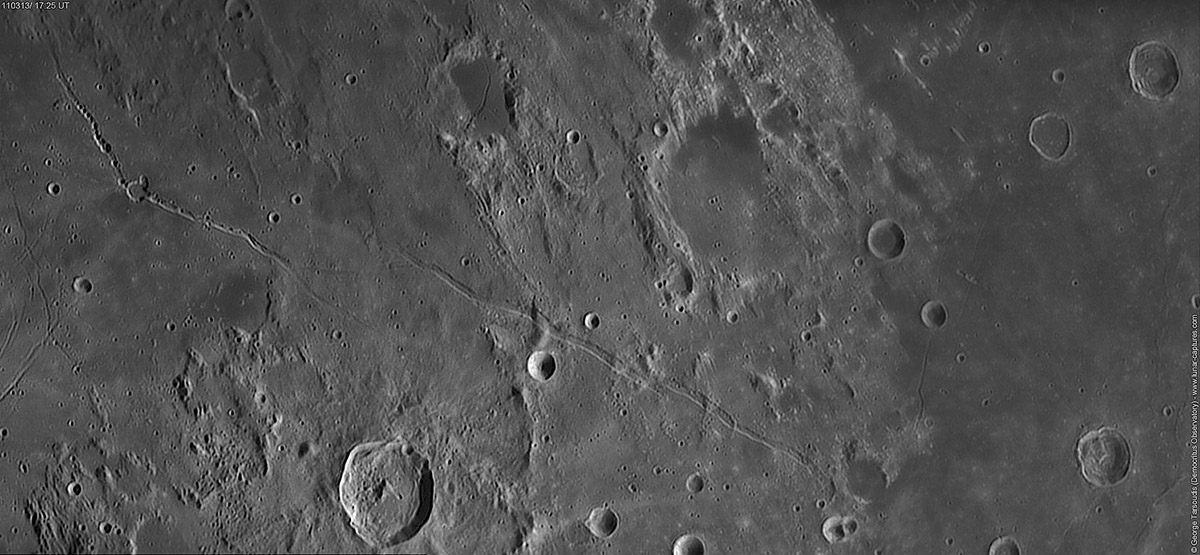Difference between revisions of "March 17, 2011"
| Line 30: | Line 30: | ||
<br /> | <br /> | ||
<strong>Related Links</strong><br /> | <strong>Related Links</strong><br /> | ||
| − | Rükl plate [https://the-moon.us/wiki/R%C3% | + | Rükl plate [https://the-moon.us/wiki/R%C3%BCkl_34 34]<br /> |
George's [http://www.lunar-captures.com/ Lunar Captures] website<br /> | George's [http://www.lunar-captures.com/ Lunar Captures] website<br /> | ||
<br /> | <br /> | ||
Latest revision as of 17:51, 13 October 2018
What is Hidden Below the Surface?

image by George Tarsoudis
The right quarter of George's mosaic is mare, and ponds of similar material have leaked out across the image.
The smooth, but not dark material that covers most of the rest of the region is called the Cayley Formation, named
for the 14 km wide simple crater cut in half by the bottom edge of the image. Although it was never sampled by
Apollo missions the interpretation has been that the Cayley material is ejecta from the formation of the Imbrium
Basin. Because of its smoothness the idea is that it was ejected in a fluidized condition and that it flowed like
a liquid when it hit the surface. I am not questioning the interpretation but wondering what is under the Cayley?
Along the southern part of the image residual rims of craters are visible, reminders that this is the northern edge
of the high cratered southern highlands. To the north are other relict large craters draped by a more pasty type
of basin ejecta. The area from Hyginus, along the Ariadaeus Rille, to Mare Tranquillitatis has fewer crater rims
and seems more uniformly flat. For the surface to be that way, the Cayley Formation must be thick enough to fill
in all low spots and submerge many high ones, or something had already smoothed the area. There is no hint
that a small basin/large crater originally existed where the Hyginus flatness is. And the lack of dark halo craters
is evidence that mare rocks don't underlie the Cayley - or else it is fairly thick. (Although mare is under Dionysius,
just at the edge of Tranquillitatis). So something removed much of the pre-existing topography in the area now
covered by the Cayley Formation but I don't know what.
Chuck Wood
Kaguya Atlas published!
Technical Details
Orion Optics Newtonian Telescope 250mm @ f/6.3, Unibrain camera Fire-i785, filter Baader Neodymium, barlow 3X, Registax 6 beta.
Related Links
Rükl plate 34
George's Lunar Captures website
Yesterday's LPOD: A Hill of Speculations
Tomorrow's LPOD: Young And Old
COMMENTS?
Register, Log in, and join in the comments.



